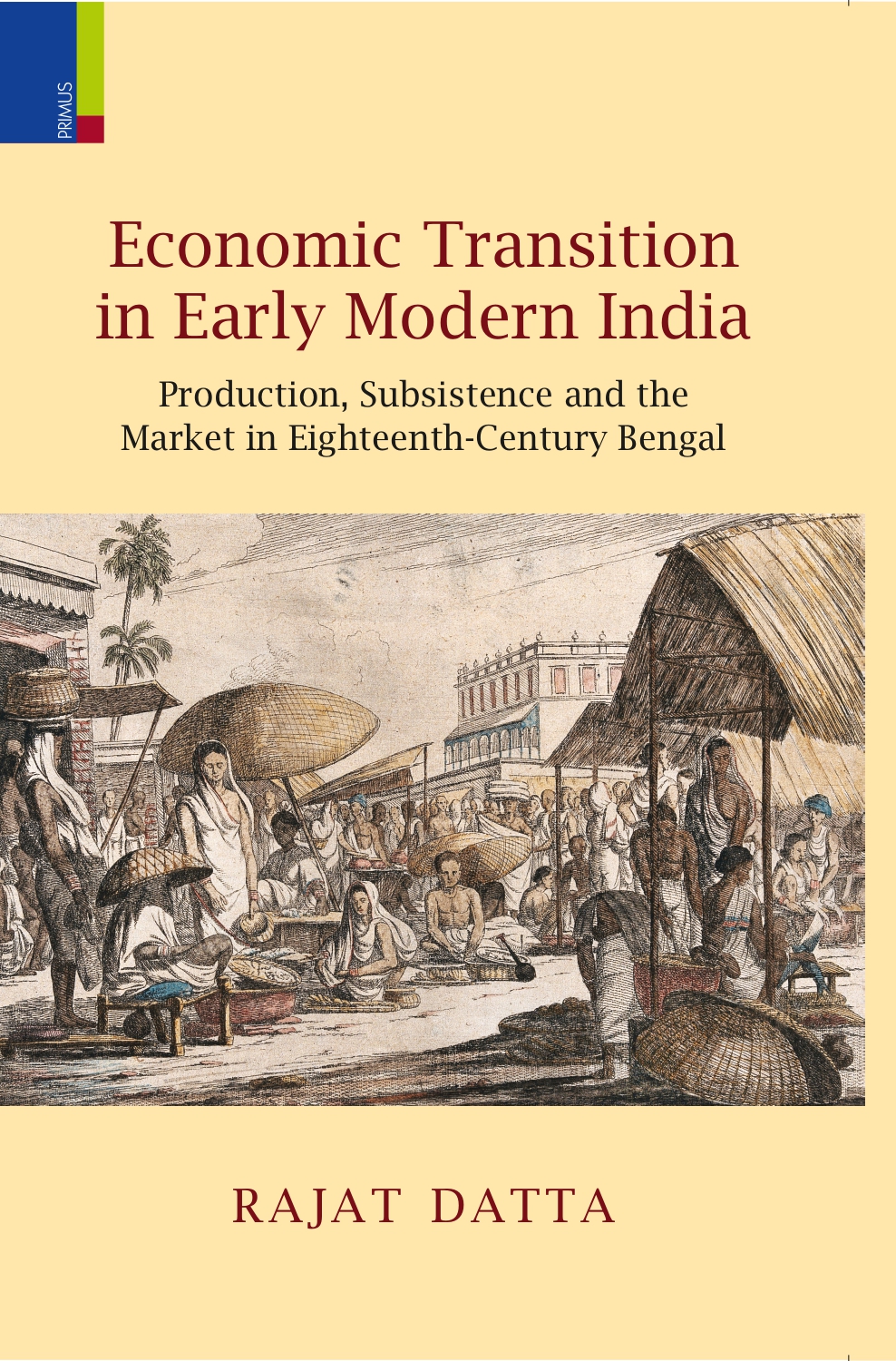Economic Transition in Early Modern India: Production, Subsistence and the Market in Eighteenth-Century Bengal by Rajat Datta

Economic Transition in Early Modern India: Production, Subsistence and the Market in Eighteenth-Century Bengal
AUTHOR- Rajat Datta
| HB ₹1050 |
||
INFORMATION
- AUTHOR : Rajat Datta
- HB ISBN : 978-93-6177-402-7
- Year : 2024
- Extent : 308
- Discount available on checkout
- Usually dispatched within 3 to 5 working days.
This book examines how the agrarian society of Bengal was transformed in the decades after the British conquest. While the focus is local, the arguments have a wider resonance. Datta revisits old debates, re-examines established orthodoxies, offers provocative arguments, and persuades us to rethink the history of late Mughal and early modern India. His arguments proceed at two levels. At one, he explores the working of markets: estimating bullion influx, trade fluctuations, price movements, and commodity flows. He shows how the internal trade between Bengal and other regions expanded, bazars and haats proliferated, with merchants and markets creating an interlocking network tying the towns to the countryside. At another level, Datta zooms into the rural areas to recover the lives of peasants. We see them engaged in intensive cultivation of their land with domestic labour, producing rice, lentils, mustard, mulberry and cotton, participating in an increasingly complex market network, negotiating monsoons and fluctuating harvests. Through a close study of the 1769–70 famine, Datta explores how such cataclysmic crises were produced, and what they meant to different sections of rural society. Deeply researched and engagingly written, Economic Transition in Early Modern India is an outstanding contribution to the history of early modern India.
ts.
The Author
Rajat Datta (1956–2021) retired as Professor of History, Jawaharlal Nehru University. He was a Commonwealth Scholar at King’s College London, a Smuts Visiting Fellow to Cambridge University, and a British Academy Visiting Fellow to the UK. As one of the founding editors, he helped shape the Medieval History Journal published by SAGE. A specialist in economic history, he was a historian of late medieval and early modern India, who published widely on the agrarian history of Bengal, and the trajectories of development within a comparative perspective.




